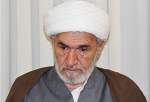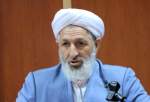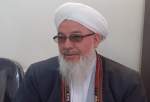Iraqi and Yemeni resistance groups have voiced solidarity with Lebanon’s Hezbollah movement in response to the recent Israeli shelling on southern Lebanon.
31 Mar 2025
- Gazans perform Eid prayers atop ruins of mosques amid relentless Israeli bombardment
- Supreme Leader: Iran's response to any malice will be a strong reciprocal blow
- Iran’s Leader Leads Eid al-Fitr Prayers in Tehran’s Grand Mosalla
- Muslims in Iran and Around the World Celebrate Eid al-Fitr
- President Pezeshkian Congratulates Islamic Leaders, People on Eid al-Fitr
- Normalization of relations with Israel cannot be accepted, Hezbollah chief says
- Israel plans to dismantle refugee camps in Jenin, Tulkarm in occupied West Bank: Report
- Israel officers to displaced Palestinians: ‘Go to Egypt and don’t come back’
- Hamas: ‘Talks with Gaza truce mediators intensified in recent days’
- Houthis report 69 US airstrikes Friday in Yemen, highest single-day total












